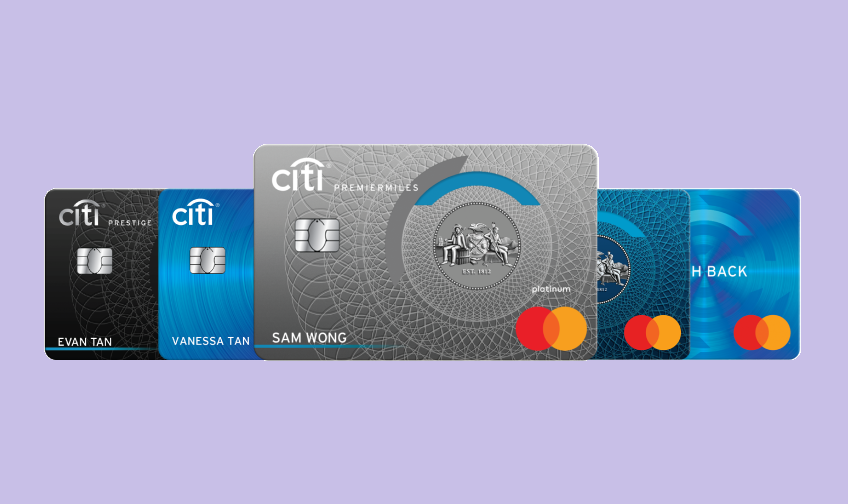How to Choose the Ideal Credit Card for Your Financial Needs

Understanding Your Financial Needs
Choosing the right credit card can feel overwhelming. With so many options available, it’s easy to get lost in a sea of offers and terms. However, understanding your financial needs is the first step towards finding the perfect card for you. By carefully considering your habits and preferences, you can make a choice that not only enhances your financial health but also rewards you for your spending.
Analyze Your Spending Habits
The first step in the credit card selection process is to analyze where you spend the most. For instance, if you find that a significant portion of your budget goes towards groceries, you might benefit from a card that offers higher cash back rates for supermarket purchases. Some cards provide as much as 6% cash back on groceries, which can add up significantly over time.
Likewise, frequent travelers should look for cards that provide benefits associated with travel, such as free checked baggage, airport lounge access, or travel insurance. For example, a card aimed at travelers might offer 3x points on airline purchases, allowing you to accumulate points that can be redeemed for flights or hotels. Understanding your spending patterns helps you pinpoint the type of rewards that align with your lifestyle.
Explore Rewards Programs
Different cards offer various reward systems, such as cash back, points, or travel miles. Cash back cards are straightforward—every dollar you spend translates directly to a percentage returned to you. For instance, if you earn 2% cash back on your purchases and spend $1,000 in a month, you would earn $20 back.
On the other hand, points-based programs often allow for greater flexibility in how rewards are used. Points can be redeemed for merchandise, gift cards, or travel expenses, making them appealing if you have diverse interests. Some travel co-branded cards allow points to be transferred to airline loyalty programs, potentially maximizing your rewards.
Be Aware of Fees
As you navigate your options, being aware of fees is crucial. Annual fees can vary significantly; some cards come with no fees, while others may charge upwards of $500, typically offering extensive rewards in return. Additionally, consider foreign transaction fees if you plan on traveling internationally, as these can add up quickly when spending abroad.
It’s also important to take note of the card’s interest rates. If you often carry a balance, a lower annual percentage rate (APR) could save you money on interest payments. Understanding these factors will help you assess the cost of the card over time.
Making the Right Choice
Once you identify your preferences, you can better understand which card suits you best. For example, if you travel often, a card rich in travel benefits might be ideal because it fosters a seamless travel experience. Conversely, if you prefer simplicity and low costs, a no-annual-fee card can be a practical choice without the burden of additional costs.
In this article, we have provided a foundational framework to help you make an informed decision about credit cards. By considering your spending habits, the type of rewards that resonate with you, and any associated fees, you’re now equipped with the knowledge to choose a credit card that aligns with your financial goals and lifestyle. Remember, the right card can not only provide financial benefits but also contribute positively to your overall financial strategy.
LEARN MORE: Click here for an in-depth look
Assessing Your Financial Situation
Before diving into the world of credit card options, it’s essential to take a moment to assess your overall financial situation. Understanding your current financial status—such as your income, expenses, debts, and credit score—will play a significant role in determining which credit card fits you best. This assessment allows you to create a solid foundation for your credit card decision-making process.
Review Your Income
Your income is a crucial determinant of the credit card you might want to consider. Higher income levels can offer you access to cards with more lavish rewards and additional benefits. However, it’s important to evaluate your income relative to your expenses. If you’re living paycheck to paycheck, opting for cards with high annual fees and extravagant rewards might not be practical.
Understanding Your Expenses
Next, take a close look at your monthly expenses. By categorizing your spending, you can uncover patterns that will inform your card selection. For example, if your expenses are centered around everyday essentials like groceries and gas, a card that offers cash back on these purchases can be particularly advantageous. Conversely, if you have substantial recurring bills such as utilities or subscriptions, selecting a card that offers rewards or cash back on such expenditures might also be worthwhile.
Evaluating Your Debt and Credit Score
It’s equally important to comprehend your existing debts and overall credit score. If you have significant debt or a low credit score, you may want to approach credit card applications with caution. Applying for multiple cards within a short time frame can negatively impact your credit score. Review your credit report and ensure you’re aware of any outstanding debts before choosing a card. This preparation will help you identify cards that you can realistically qualify for based on your credit profile.
Consider Your Financial Goals
Your long-term financial goals are also key in selecting the ideal credit card. Ask yourself if your primary objective is to build credit, earn rewards, or manage spending effectively. Depending on your goals, some types of cards might be more suitable:
- Secured credit cards are excellent for building or rebuilding credit, as they require a cash deposit as collateral.
- Rewards credit cards can help you maximize your purchases if you pay off your balance each month and want to earn cash back or points.
- Low-interest cards will benefit those who tend to carry a balance, as they save money on interest charges over time.
By evaluating your financial situation, you can pinpoint the specific features and benefits of credit cards that are most compatible with your needs. An analysis of your income, expenses, debts, credit score, and financial goals forms the groundwork for making an educated credit card choice. This process ensures that you select a card that not only fits your lifestyle but also supports your overall financial well-being.
LEARN MORE: Click here to uncover the effects of credit cards on your score
Identifying Card Features and Benefits
Once you have assessed your financial situation, the next step is to delve into the specific features and benefits associated with various credit cards. Not all credit cards are created equal, and understanding what each type offers can significantly impact your choice and its alignment with your financial goals.
Rewards Programs
If your primary focus is to maximize rewards, consider a card that features a robust rewards program. These programs typically fall into two categories: cash back and points or miles. Cash back cards return a percentage of your purchases; for example, a card that offers 2% back on groceries can yield substantial savings for families. On the other hand, travel rewards cards can earn points that can be redeemed for flights, hotels, and other travel-related expenses. If you travel frequently, this type of card may enhance your journey while offering benefits such as free checked bags or priority boarding.
Introductory Offers
Another aspect to consider is the introductory offers that many credit cards present to lure new customers. These can range from bonus cash back after meeting specific spending requirements to 0% APR promotions for a certain period. For example, a card might offer you a $200 cash bonus after spending $1,000 in the first three months. Taking advantage of such offers can give you considerable value, especially if you have planned purchases coming up.
Annual Fees and Additional Costs
While seeking valuable benefits, don’t forget to factor in the annual fees associated with credit cards. Some premium cards come with high fees but may provide perks that outweigh these costs. Assess whether the rewards and benefits justify the expense, especially if your spending habits may not be sufficient to maximize them. Conversely, if you’re wary of high fees, you can find plenty of no-annual-fee options that also offer decent rewards and features.
Interest Rates and Other Charges
Understanding the interest rates and additional charges associated with credit cards is crucial, especially if you expect to carry a balance. Look for cards that offer a competitive annual percentage rate (APR). Providers will often advertise low interest rates, but make sure to read the fine print; the rate may vary based on your creditworthiness. Besides APR, it’s important to be aware of other fees, such as late payment penalties or foreign transaction fees, which can add up quickly if not monitored.
Customer Service and Additional Benefits
Lastly, consider the customer service offered by the credit card issuer and any additional benefits they provide. Some companies have 24/7 support or user-friendly mobile apps that can make managing your credit easy and efficient. Look for benefits like purchase protection, extended warranties, or travel insurance, which can save you money or offer peace of mind in various situations.
By aligning the specific features and benefits of credit cards with your financial reality, you can make an informed choice that complements your lifestyle and financial aspirations. Understanding rewards programs, fees, interest rates, and customer service will empower you to choose a card that truly meets your needs while enhancing your financial experience.
DISCOVER MORE: Click here to learn about credit score impacts
Conclusion
In the ever-evolving landscape of personal finance, choosing the ideal credit card can be a pivotal decision that impacts your financial well-being. To navigate this process effectively, it is crucial to reflect on your spending habits, financial goals, and lifestyle choices. By understanding the foundational aspects of credit cards—such as rewards programs, introductory offers, fees, and interest rates—you can make an informed decision that aligns with your unique needs.
Furthermore, it is essential to remember that what works for one individual may not necessarily work for another. A frequent traveler might find tremendous value in a travel rewards card, while someone focused on everyday savings could benefit more from a cash back card. As you explore your options, assess the long-term value each card can provide and ensure that its benefits outweigh any associated costs.
Finally, do not underestimate the importance of customer service and additional features that a credit card issuer may offer. Quality support can enhance your overall experience and also protect your investments through benefits such as purchase protections and insurance. By taking the time to analyze all aspects of a credit card, you are not only setting yourself up for success but also empowering yourself to make smart financial choices. In doing so, you can create a rewarding financial journey that fits seamlessly into your overall financial strategy.


